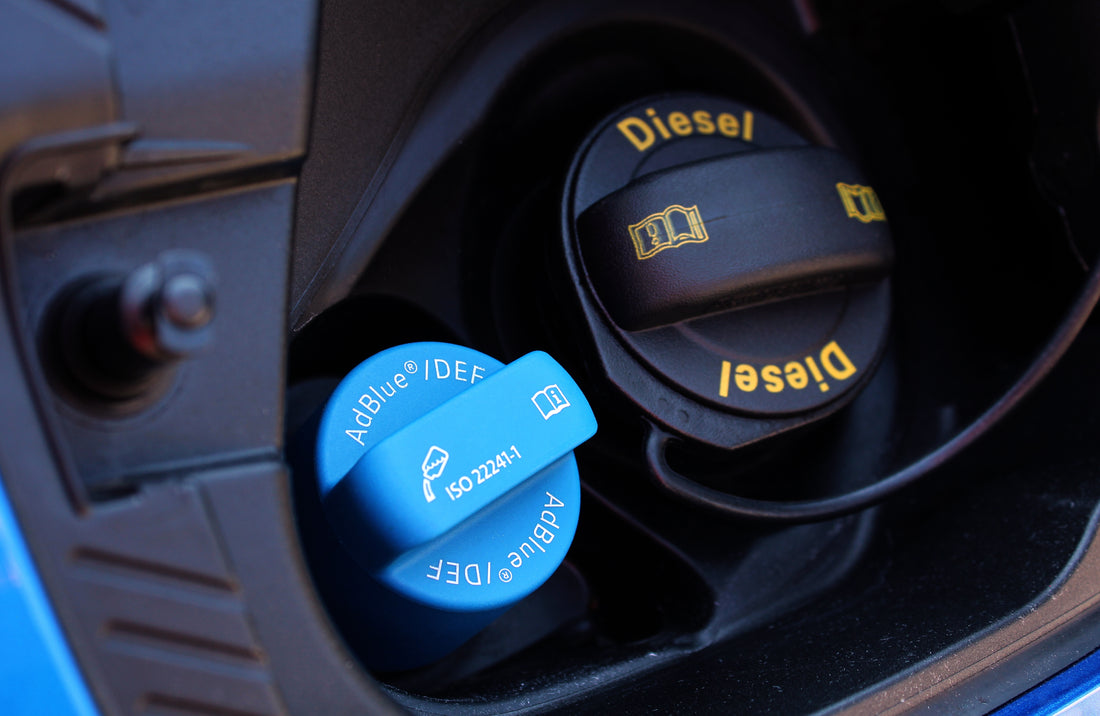Looking to purchase an Adblue tank but aren’t sure which one to choose? Here’s our guide to help you decide which Adblue tank you need, and how it can benefit you.
We’ve outlined the crucial do’s and don’ts of using Adblue, and outline the purpose of Adblue tanks. Explore various types that we supply to help you make an informed decision.
Contents
What are Adblue tanks?
Adblue tanks are specialist containers used to store and dispense Adblue fluid, also known as diesel exhaust fluid. These tanks are often manufactured from a high-density polyethylene (HDPE) or other kinds of corrosion-resistant materials to avoid the risk of contamination. Adblue is a clear, non-toxic, colourless liquid that consists of components such as urea and deionised water. It is used in diesel vehicles equipped with selective catalytic reduction (SCR) systems to reduce harmful emissions of nitrogen oxides (NOx). Companies usually need these tanks when relying heavily on diesel fuelled vehicles, for example companies in the transport industry often need onsite Adblue tanks to refuel their HGVs.
How does Adblue work?
Adblue solution is injected into the vehicle's exhaust system where it interacts with nitrogen oxide gas that is generated during combustion. This interaction allows any polluting components to be eliminated from the exhaust gas, forming them into non-polluting nitrogen, oxygen and water. This effective process minimises emissions and is known as a selection catalytic reduction (SCR). The SCR process is only suitable for diesel engines and enables vehicles to be compliant with regulatory standards.
Do’s & Don'ts of using Adblue
Contamination
DON’T add Adblue to your fuel tank.
A common misconception is that Adblue solution can be added to diesel fuel directly within the tank. It is important to note AdBlue is not a fuel additive, and it should never be mistaken for diesel fuel. Similarly, avoid diluting AdBlue with water or any other fluids.
DO use a dosing control device.
An AdBlue solution must remain in its purest form to ensure the SCR system operates correctly. It should be introduced into the exhaust gas through a dosing control device, allowing a consistent blending at a predetermined rate.
Running low
DON'T ignore warning lights for low Adblue levels on the vehicle's dashboard.
It's crucial not to overlook your vehicle's dashboard warning light if it illuminates due to low AdBlue levels. Promptly refill the AdBlue tank to avoid potential engine performance issues.
DO keep an eye on the Adblue level in your vehicle tank.
Aim to keep an eye on the AdBlue level in your vehicle's tank so it can be refilled before it runs empty. Running out of AdBlue completely can cause the vehicle's engine performance to be affected or even lead to system damage.
Topping Up
DON'T use expired or contaminated Adblue solution.
Avoid using AdBlue that has been tainted with foreign substances or has expired its shelf life. Contaminated AdBlue can potentially be harmful to a SCR system, resulting in expensive repairs.
DO use the correct Adblue solution defined by your vehicle manufacturer.
It's important to always use AdBlue that meets the grade and quality specifications defined by your vehicle manufacturer. Using the incorrect type of AdBlue can result in system malfunctions or damage.
What type of AdBlue tank do I need?
Only diesel-powered vehicles equipped with a Selective Catalytic Reduction (SCR) system are authorised to utilise AdBlue, so deciding the appropriate type of AdBlue tank depends on several factors. The factors to consider include your specific needs, usage patterns, available space, and the scale of your vehicle fleet.
Firstly, it's important to measure the frequency of AdBlue refills, the distances covered by your vehicles, and the conditions they operate under. You will also need to evaluate how accessible the refilling stations are and if there are any requirements for on-site storage. Additionally, it's crucial to consider any regulations or standards regarding AdBlue storage and distribution in your region.
Based on these factors, you can decide from various types of AdBlue tanks, including external tanks, portable tanks, and bulk storage tanks. After careful consideration of these factors, you can select the most suitable type and size of AdBlue tank.
In conclusion, Adblue tanks are crucial for effectively storing and dispensing Adblue fluid, which is essential for minimising harmful emissions in diesel vehicles equipped with SCR systems. It’s key to understand how Adblue works to ensure optimal performance and compliance with regulatory standards. Ultimately, selecting the most appropriate tanks depends on various factors that need to be considered carefully.
What do we have at Cotterills?
At Cotterills we offer a range of Adblue tanks to meet your specific needs and requirements. For more information call our team of experts to learn more about Adblue fluid and Adblue tanks on 0121 351 3230.
Alternatively, fill out our enquiry form:




